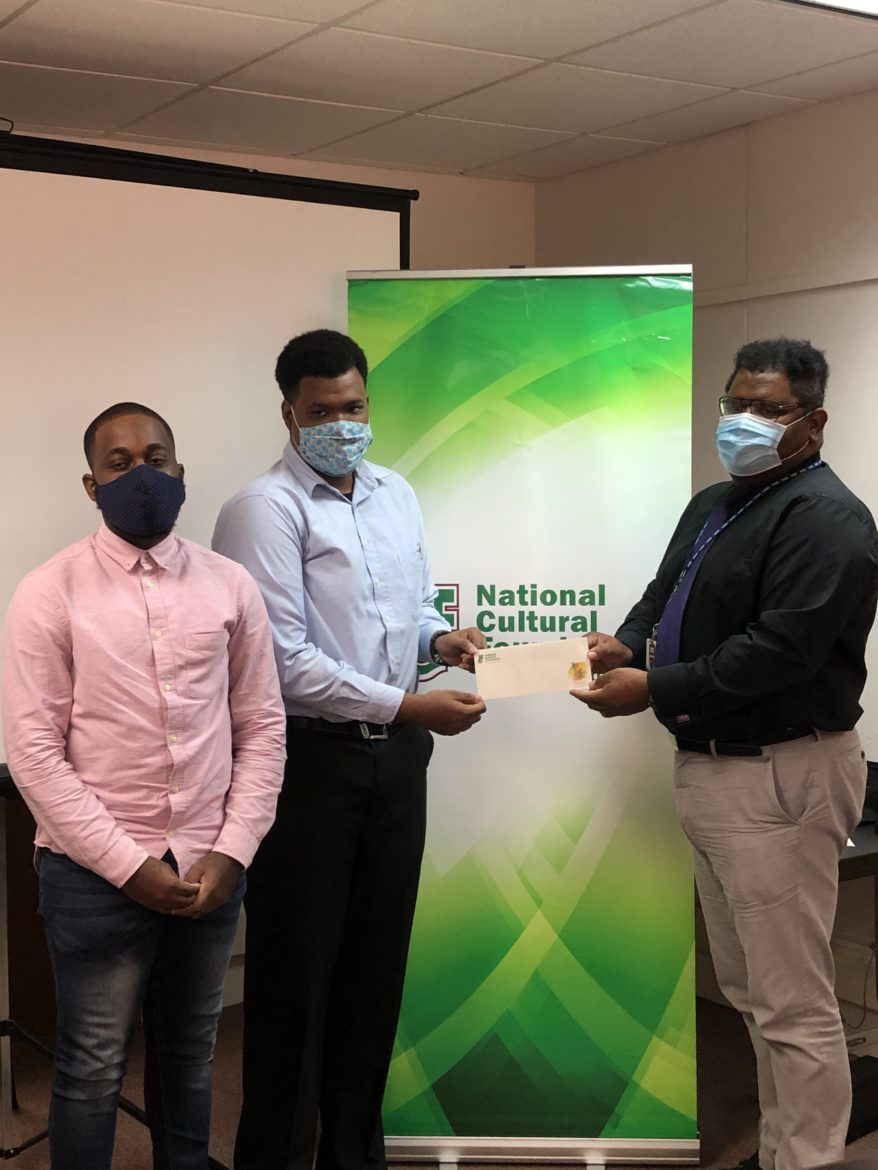
GENERAL
With the establishment of the Cultural Industries Development Act, a fund was created called the Cultural Industries Development Fund whose primary objectives are to:
(a) finance cultural projects and programs that are designed to develop the creative industries sector and train creative entrepreneurs and other people working in the creative industries;
(b) provide creative entrepreneurs or creative practitioners with non- repayable grants to enable them to participate in local and overseas events, workshops and seminars, and allow for training, marketing, export and product development;
Below, please see the general guidelines associated with the disbursement of grant funding to registered creative practitioners for qualifying cultural projects and services.
ELIGIBILITY
To be eligible to receive grant funding through this program and to benefit from any incentives contained in the Cultural Industries Development Act, the applicant must have completed registration on www.barbadosartists.bb. To register, visit the website http://www.barbadosartists.bb or visit the offices of the NCF Business Development Department.
Applicants who benefit from this and other sources of funding from the institution will not qualify for grant funding within that year.
GENERAL GUIDELINES
The Cultural Industries Development Fund is open to all citizens of Barbados and companies registered in Barbados whose principal shareholder or partner is a citizen of the island. Applications for disbursement of grant funding will be considered based on the following:
- A completed standardised grant application form (available for download from the resource library) .
- The presentation of all documents as required in the application form.
Applications are preferred in the following areas:
Research work conducted within the area of the cultural industries
Innovative ideas, products or services that will stimulate development in fashion, visual arts, film production, performing arts, literary arts and cultural heritage
Technical training and or professional development in the cultural industries
The development and use of databases and new technologies with the purpose of enhancing the operations and management of the cultural industries sector
The strengthening of network activities of the cultural institution
NB. Creative entrepreneurs are limited to one grant disbursement within a 12-month period and one disbursement per cultural project.
TYPES OF GRANT FUNDING
There are three (3) types of grants offered through the CIDF. Each describes the area of assistance which the grant is expected to impact, and each comes with its own specific application form. They are:
Technical Assistance Grant (TAG)
Product Development Grant (PDG)
Project Execution Grant (PEG)
Technical Assistance Grant (TAG)
Technical Assistance refers to expertise or skilled training provided to a creative entrepreneur through attendance / participation in workshops, seminars, conferences or other events for improving knowledge and skills within the sector. It may include the purchase of raw materials or specialist equipment to assist in manufacturing or production. (Up to $5,000)
Product Development Grant (PDG)
Grant funding issued for product development assists creative entrepreneurs in the development of new or different products or services that may offer new or additional benefits. The grant may also assist in the modification of existing products through manufacturing or formulation of an entirely new product(s) that satisfies a newly defined local or international customer. (Up to $30,000)
Project Execution Grant (PEG)
Project Execution funding is provided to creative entrepreneurs seeking assistance to complete a cultural or creative project that provides opportunities to market, promote and showcase the cultural product or service or to generate revenue through the sale of artistic or creative work. (Up to $30,000)
Click here to access grant forms.
APPLICATION PROCESS
Once the application form is completed and submitted, it is reviewed by the NCF Business Development Department, further information may be requested and a business development sessions may be held to discuss the business/project. Following this, the application is thus submitted to the NCF Board of Directors for approval. The TAG approval takes 4-6 weeks and the PEG and PDG approvals take 8-12 weeks.
RESTRICTIONS
The main purpose of the Cultural Industries Development Fund is to support the sustainable development of products produced and services being delivered in the cultural industry of Barbados. Grant funding will not be provided for the following:
- Sponsorship for events
- Debt repayment and/or retroactive payments
- Finance for any form of capital expenditure
- Payment of salaries or ongoing wages
- Computers or Laptops (though computer parts or software are allowed)
SELECTION CONSIDERATIONS
Evaluation of successful project proposals should take into consideration the following:
The project’s potential to develop a cultural project or service aligned with the national strategy for the cultural industries.
Impact on the industry segment or community in which it serves or operate. This includes consideration as to the potential for foreign exchange generation, employment, artistic or cultural development, innovation, institutional building and technology.
Sustainability of the cultural/ artistic product or service after funding support.
The overall sustainable viability of the cultural/ artistic product or service.
Emphasis shall be given to those project proposals that are compatible with government strategies and policies with respect to the development of the Barbados cultural industries.
NCF Business Development Department uses a merit-based system to access all applications according to established criteria described above.
CONFIDENTIALITY
All applications and assessments are strictly confidential.
FOLLOW-UP AND REVIEWS
NCF as the funding agency reserves the right to request the following during the project execution or after its completion;
Copies of all receipts of items/ services purchased with the grant funds
Visit to the offices of the institution and or individual applicant. During this visit, additional information may be demanded to complete the project evaluation such as audited financial statements (if such exists), or any other relevant supporting information which may assist with the evaluation.
Successful applicants may be asked to complete NCF Business surveys which may assist in evaluating the success of the project or its relevance to the overall national strategy for the cultural industries.
Perform any other review to ensure that its funding was used in the manner requested under the project proposal or artistic endeavour.
Failure to comply with all required rules and regulations pertaining to the receipt of the grant may result in the recall of funds disbursed. This could result in legal action.
OBLIGATIONS
If approved for funding, the grant recipient will be required to:
Sign a beneficiary agreement detailing the terms of the grant’s disbursement and associated obligations
Submit all receipts showing funding spend.
Commit to doing a knowledge share session/workshop
Commit to a publicity appearance for NCF Business Development Department
Publicise the NCF Business Development Department in the execution of the project
Submit a detailed report at the end of the project which includes the following:
A Summary of the Project Execution and Outcomes
Progress in satisfying the national benefits
Final Financial Statements with receipts of expenditure
Photographs of the Final Product and Project Execution
Failure to fulfill the above obligations results in the grant recipient having to repay the grant in full.
APPLICATION FORMS
All project proposals must be accompanied by a fully completed application form which is available HERE. Please also remember to submit quotations covering all items in the application budget.
Should you encounter download problems, you can call or email us to request a copy.
Lisa Howell – 417-6646/lisa-howell@ncfbarbados.org
Tamara Arthur – 417-6626/tamara-arthur@ncfbarbados.org
Applications for TAG funding should be received no later than four (4) weeks prior to the date of execution of the project and PDG & PEG should be received no less than twelve (12) weeks prior to the execution of the project.
SUBMISSION
Upon completion you may submit your application and relevant attachments to Senior Business Development Officer André Hoyte at andre-hoyte@ncfbarbados.org or business-development@ncfbarbados.org.





